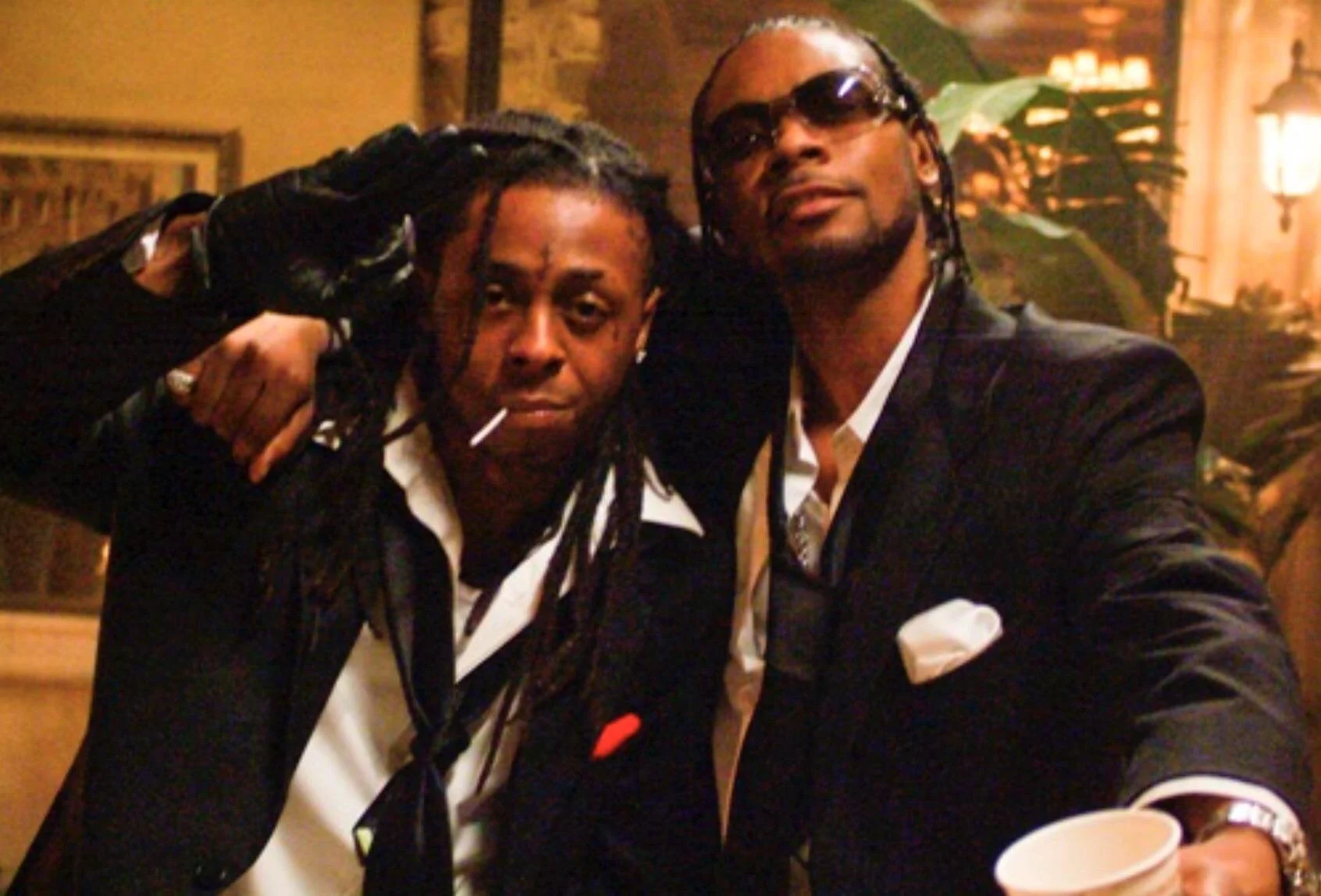Keep it Playa: Immortalising the Legacy of Static Major
From Jay-Z's "Change the Game" to Aaliyah's "Come Back in One Piece", melodic mastermind Static Major achieved more in a decade than many do in three. To celebrate his contributions to the culture, we're delving into his profound impact and artistry fifteen years after his tragic passing.
As writers, we experience a thematic melancholy when tasked with the bittersweet and bookish nature of eulogies. We're the wordsmiths behind the scenes, elucidating and cramming the vastness of others while sometimes missing the humanity that made that person so integral to friends, family, and, in some cases, the broader scope of pop culture. Static Major, the crooner-turned-songwriter behind a gauntlet of R&B and hip-hop hits, embodied this thesis.
Despite the acclaim from his industry peers, Static Major's name rarely appeared on magazine covers or Rap City reports. He remained an enigma—a talented whisper amidst the industry's roar. Researching his life rekindled a dormant ember within me. Two months of writer's block, fuelled by information overload, mirrored the recognition Static perhaps sought during his lifetime.
To some, the feeling is known all too well. The sense of stifling silence where inspiration seems distant is all too familiar. Well-meaning reassurances lose their power over time. The truth is that creativity can vanish in an instant, a stark reminder of its fickle nature.
Not for Static, though. In his 33 laps around the world, his creativity only flowered into bolder and brighter bastions of art. Arguably, his final release in his lifetime, a guest feature on Lil Wayne's 2008 flip phone classic "Lollipop", is what Static is best known for.
In telling Static's story, I hoped to rekindle my own creative spark. Static, the master behind the mic, became a reminder that the most incredible stories remain untold if we let the muse slip away. This was highlighted when I found a candid YouTube video of Static, casually at a piano, weaving chords and lyrics with a friend. "Music is like breathing. Simple stuff," he said—a statement that gained tragic significance when the video was uploaded.
Unearthing Static's story felt like discovering a lost chapter in R&B history. His birthplace, Louisville, Kentucky, wasn't known for the smooth, soulful sounds he would master. Yet, amidst the quiet streets, a young Stephen Ellis Garrett Jr. nurtured a talent that would resonate far beyond his hometown. Picture a six-year-old leading a 30-person church choir. His voice matures beyond his years—a ritual that laid the foundation for his chord-based conquest.
Teenage Stephen wasn't alone in his musical passion. The local guys he battled on the mic, fuelled by the city's energy and a shared hunger for success, would become his closest collaborators. These unlikely friendships, forged in friendly competition, would shape his career.
Tragedy struck when Stephen was just 16. Despite a lung transplant, his sister passed away at a young age, leaving behind a daughter. The loss led him to a program for troubled youth, but music remained his solace. A powerful rendition of the national anthem earned him a scholarship to the University of Louisville, where he honed his craft in the late '80s.
Reuniting with his friends, Stephen joined their R&B group, initially called A Touch of Class. This collaboration eventually evolved into Playa, synonymous with 1990s and 2000s R&B.
The group caught the attention of young producer DeVante Swing from the rising R&B quartet Jodeci. Recognising Static's immense talent, DeVante became a mentor, bringing Playa under his wing and giving them the platform they needed. This twist of fate brought Static full circle, from early competition with Jodeci's members to collaborating through their shared producer.
Inspired by Dr. Dre's "U Better Recognize" with Sam Sneed, Stephen adopted the stage name "Static". While catchy, it wasn't groundbreaking. To carve his niche and reflect his ambition, he added "Major" to solidify his stage persona.
“Hip-hop fanatic causin’ static in the industry”
Static Major was the secret weapon behind some of the most iconic R&B anthems of all time. Imagine a world without Ginuwine's infectious "Pony" or Aaliyah's heater "Loose Rap"? Beyond being a producer, Static was an architect of unforgettable melodies. Effortlessly switching between rapping and soulful singing, he crafted instant classics. Tracks like Aaliyah's "More Than a Woman" blended soulful vocals with a driving hip-hop beat, creating a futuristic and timeless sound.
Formal categories were mere canvases for Static's paintbrush-like approach to genre. He possessed a remarkable ability to weave elements of hip-hop, R&B, and even pop into his productions, resulting in a sound weighted in the soulful and sunny, and also the space-bound, almost metallic sound of the late '90s. Listen to "Bills, Bills, Bills" by Destiny's Child—that instantly recognisable whistle melody was all Static's doing.
He wasn't afraid to push boundaries, as evident in tracks like vocal bible Brandy's "Everything I Do Is for You", where his production seamlessly blends soulful vocals with a haunting orchestral arrangement.
Static Major's influence transcended individual songs. He was a key collaborator on entire albums, most notably Aaliyah's self-titled masterpiece, which he co-wrote and produced a significant portion of, from "Rock the Boat" to "Never No More. Aaliyah was tragically released a month before the singer's tragic passing. The album showcased the depth and range of his creative partnership with Aaliyah.
Fast-forward a decade. Nine-year-old Ashley is back from school, glued to the screen, mesmerised by the catchy tune and slick visuals of "Lollipop" on MTV Base. The voice that seamlessly complemented Wayne's swagger belonged to Static, though that detail flew over my head at the time. For seasoned hip-hop fans, the video held a deeper meaning.
It wasn't just Lil Wayne's rising star on display; it was a reunion. They saw two distinct forces in the frame—Wayne, on the cusp of superstardom, and Static, the already-established hitmaker whose vocals had graced countless R&B classics. The collaboration became a one-way ticket to global stardom, earning Wayne a Grammy and diamond certification with over ten million copies sold.
Static Major's influence rippled through the industry even after his passing. Rapper Drake, rising to superstardom during this era, sampled Static on his 2011 album Take Care in the track "Look What You've Done". The sample features a melancholic piano loop of Static's soulful vocals from the "If Ya Scared, Ya Scared" video, complementing Drake's lyrics about a strained relationship. Sampling Static recognised his talent and introduced his music to a new generation. On Drake's multi-platinum Scorpion from 2018, he called upon Static once again for a phantom feature on the standout track "After Dark" alongside Ty Dolla $ign.
Though not confirmed, PartyNextDoor, Summer Walker, Jhené Aiko, and Bryson Tiller have produced music suggesting inspiration from Static's sound. Their focus on soulful vocals, catchy melodies, and smooth R&B grooves echoes his legacy. These artists and those sampling his work demonstrate Static Major's enduring influence on modern R&B.
This deep dive into Static Major's life, intended as a tribute, unexpectedly reflected my artistic struggles. My longing months of writer's block and information overload mirror the recognition Static perhaps craved in life. It's a feeling many creators face—the fear of going unheard, the self-doubt that creeps in despite the mountain of information and inspiration at our fingertips.
My exploration of Static's story offers a glimpse into his immense talent and serves as a testament to his enduring inspiration. It highlights the power of the "unsung hero"—those who shape our world without constantly receiving recognition. Static Major's story reminds us that the brightest lights can be extinguished too soon and urges us to create and share our gifts with the world now.
If you listen closely, the moody beats peppered throughout Bryson Tiller's 2015 classic T R A P S O U L or the low-lit ambience of PARTYNEXTDOOR's recent P4 album carry the torch of Static's melodic blueprint. Sadly, his discography remains poetically unfinished. At the time of his passing from respiratory arrest complicated by medical negligence, he was working on his debut album, Suppertime, which was slated for release around 2009.
Despite its relic-like resting place, shards of Static's unreleased genius beckons in the brightest corners of the music stratosphere. Alongside the unreleased Playa compilation and their shelved Blackground Records LP Never Too Late (recorded between 2002 and 2004) and an artillery-load of demos—listeners can enjoy a wide array of Static Major's art online.
If you look hard enough, you can find "Let It Go"—the 2003 Kanye West-produced track whose beat was later transformed into Alicia Keys' 2003 classic "You Don't Know My Name". Deep cuts aside, fan favourites like "Infatuated", "A Long Time", and "Private Number" showcase that Static Major's legacy endures as a paragon of Black excellence.
RIP Static Major.
Stream Playa's Cheers 2 U below:







